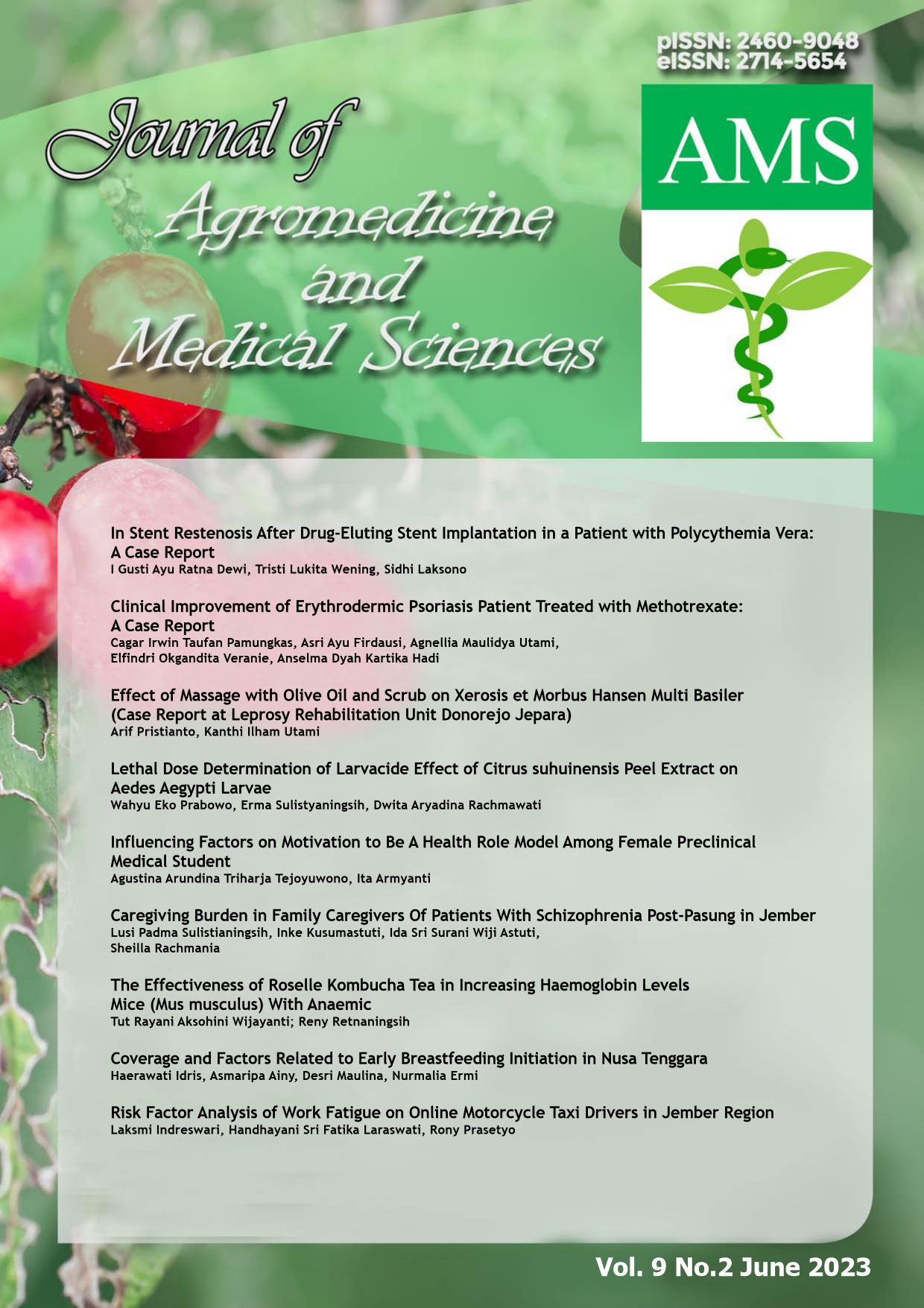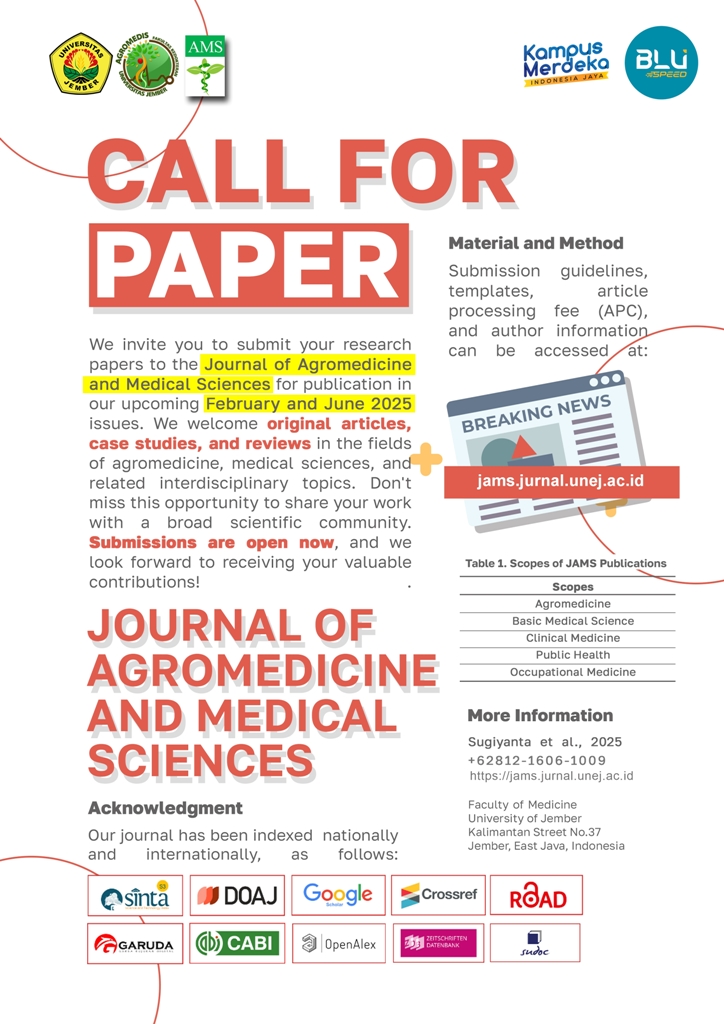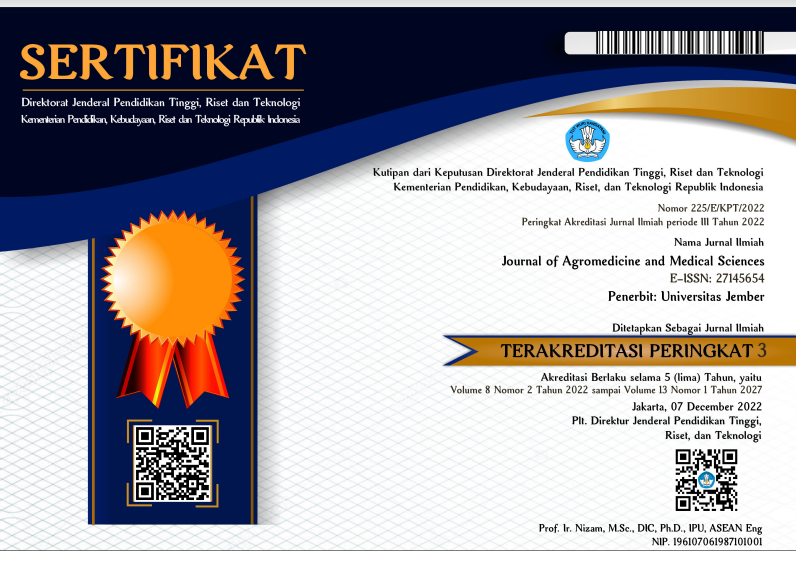Influencing Factors on Motivation To Be A Health Role Model Among Female Preclinical Medical Students
DOI:
https://doi.org/10.19184/ams.v9i2.38424Abstract
A positive assessment of self-esteem and self-efficacy will motivate, especially female students, to care about their body image, reduce the risk of eating disorders, and in turn aspire them to become healthy role-models. This study aimed to examine the influence of those variables on becoming healthy role-models. A cross-sectional study was conducted in 2021 to 189 female students at the Faculty of Medicine, Tanjungpura University. Data were analyzed using the Chi-Square test and multivariate logistic regression test. Self-esteem (p: 0.003; OR: 2.638) and self-efficacy (p: 0.000; OR: 5.752) had a significant relationship with body image, and body image had a significant relationship with the risk of eating disorders (p: 0.000; OR: 4,609). Regression analysis showed that self-esteem (p: 0.016) and self-efficacy (p: 0.024) are the variables that affected becoming of a role model. Moreover, it is found that self-efficacy had an indirect influence on eating disorders according to the body image with a coefficient of 2.45. Good self-acceptance (high self-esteem and self-efficacy) through positive self-compassion likely reduces the risk of eating disorders and improves the body image. The combination of these aspects will ultimately increase the students’ motivation to promote healthy behavior to others and thus become healthy role-models.
Keywords: Female Medical Student; Healthy Behavior; Motivation; Role As Healthy Role Model; Role Model.























